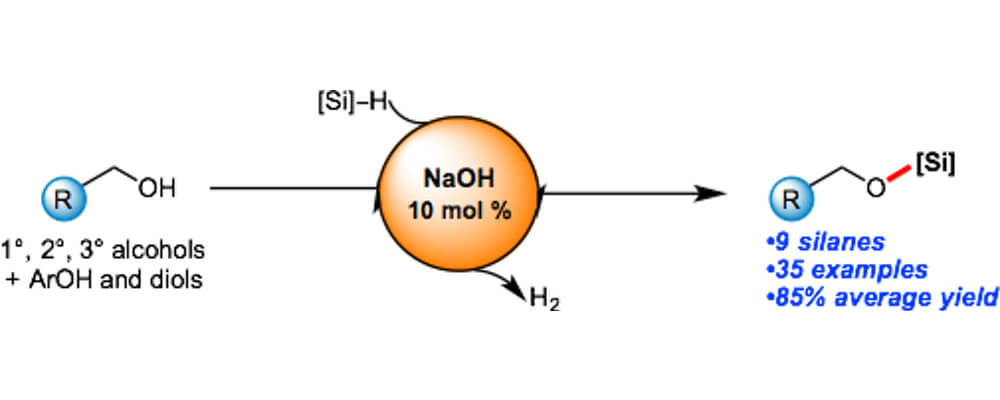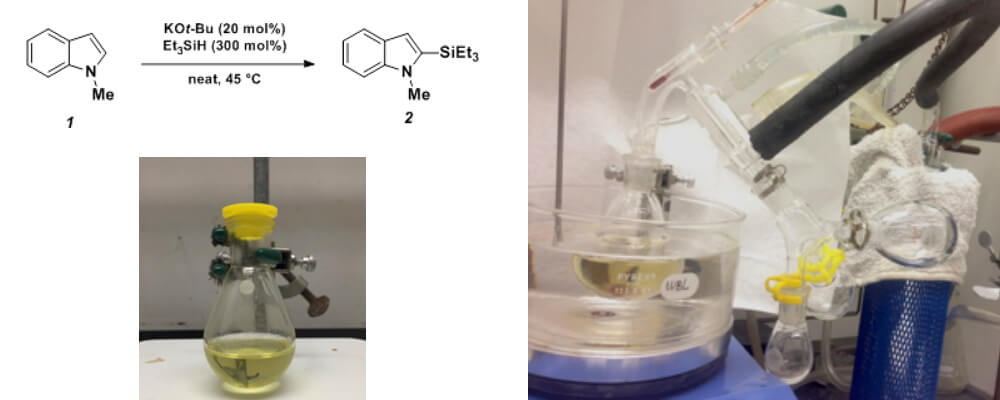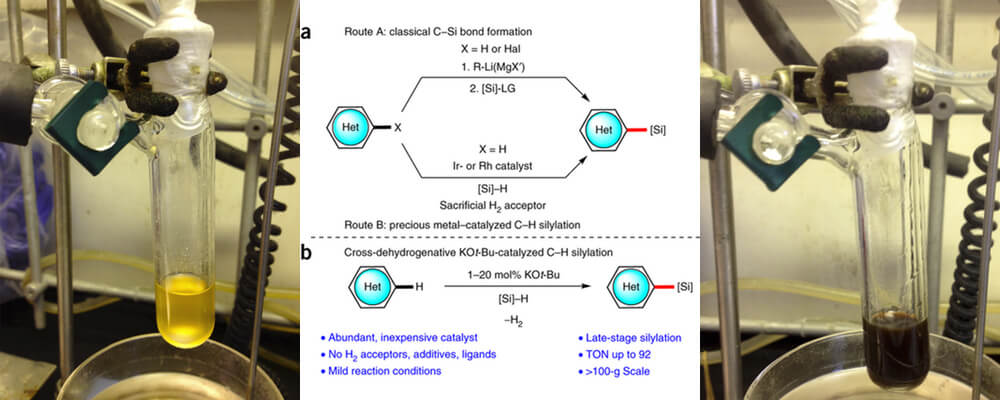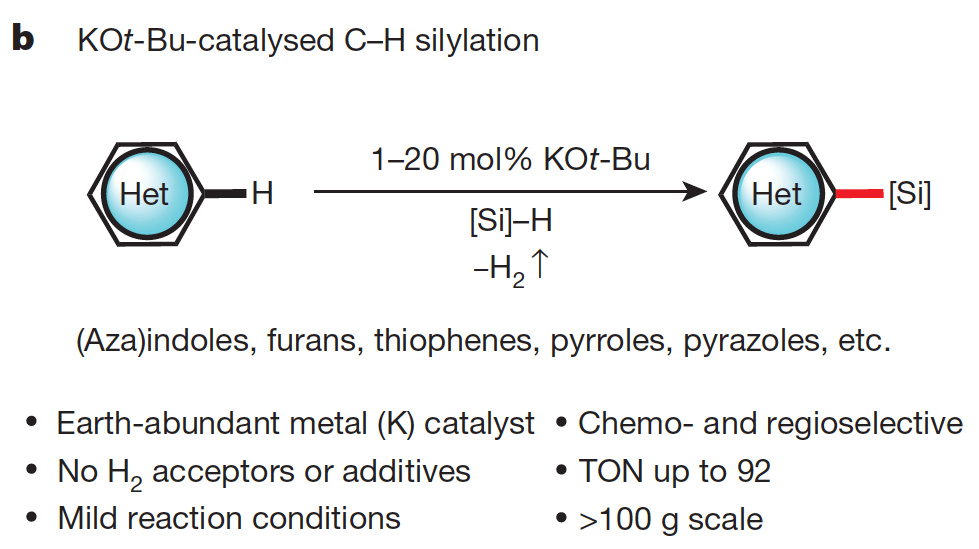Sodium Hydroxide Catalyzed Dehydrocoupling of Alcohols with Hydrosilanes
Anton A. Toutov, Kerry N. Betz, Michael C. Haibach, Andrew M. Romine, and Robert H. Grubbs
Organic Letters,
2016, 18, (22), 5776-5779; DOI: 10.1021/acs.orglett.6b01687

11/2016
A large number of catalytic methods for the construction of O−
Si bonds have been developed: the direct silylation of alcohols by
transition-metal catalysis, Brønsted and Lewis acids/bases, and
catalytic hydrosilylation of carbonyl compounds have been the
most commonly employed protocols.
However,
despite decades of work, the most straightforward method for the
construction of the O−Si bond is the treatment of alcohols with
moisture-sensitive chlorosilanes in the presence of nucleophilic
catalysts and a base to scavenge the HCl generated. Now, the
Grubbs group at Caltech has reported that the dehydrocoupling
of alcohols and silanes can be achieved with NaOH as the catalyst.
The method has excellent scope in both the hydrosilane and the
alcohol and proceeds under mild and convenient conditions to enable
access to silyl ethers for protecting and directing group chemistries,
materials science applications, and a variety of other purposes.
Author: Anton Toutov


